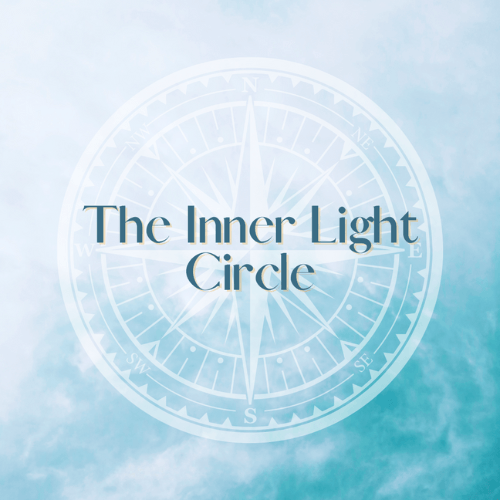
The Intersection of Spirituality and Mental Health
Introduction
In recent years, the intersection of spirituality and mental health has garnered increasing attention from both healthcare professionals and the general public. This growing interest is driven by a recognition of the holistic nature of human well-being, acknowledging that our spiritual beliefs and practices can significantly impact our mental health.
Understanding the interplay between these two aspects can offer deeper insights into how we cope with life's challenges and enhance our overall psychological resilience.
It is important to note that organized/institutionalized religions offer their unique perspectives on spirituality, but many people consider themselves to be spiritual without practicing a specific religion per se. Spirituality is often described as the human experience of connection to something larger than the individual.
Historical Perspectives
Throughout history, different cultures have intertwined spiritual practices with mental health. Ancient civilizations, such as those in India and Greece, regarded mental health disturbances not only as medical issues but also as spiritual or moral conditions.
For example, the healing temples of Asclepius in ancient Greece offered sanctuary to those seeking relief from both physical and psychological ailments, often involving rituals believed to induce divine intervention.
In more recent history, figures like Carl Jung explored the depths of the human psyche and emphasized the importance of spiritual and religious contexts in understanding one’s self and improving mental well-being. This historical blending of spirituality and mental health practices has laid the groundwork for their integration in contemporary therapeutic settings.
Spiritual Practices and Mental Health Benefits
Various spiritual practices, including meditation, prayer, and ritualistic dances, have been shown to have positive effects on mental health. Meditation, in particular, has been extensively studied for its benefits in reducing symptoms of stress, anxiety, and depression.
Research indicates that meditation can lead to changes in brain regions related to mood regulation and can increase one's capacity for emotional regulation and resilience.
Prayer and spiritual rituals can also provide significant psychological comfort and stability. They often promote a sense of community, belonging, and support, which are crucial for mental health. Moreover, these practices can imbue individuals with a sense of purpose and meaning, which are protective factors against mental health crises.
Spirituality in Clinical Settings
The integration of spirituality into clinical settings has become increasingly prevalent in psychotherapy. Spiritually integrated psychotherapy considers a patient's spiritual beliefs when designing treatment plans. This approach can enhance the therapeutic relationship and provide a more comprehensive treatment model by aligning with the patient's values and beliefs.
For example, cognitive-behavioral therapy (CBT) adapted to include spiritual concepts can help patients use their spiritual beliefs to challenge irrational thoughts and behaviors, fostering a greater sense of peace and purpose. Therapists trained in spiritually integrated methods are adept at navigating the nuances of spirituality without imposing their own beliefs, thereby respecting the patient's spiritual autonomy.
Challenges and Criticisms
Despite its benefits, the integration of spirituality into mental health care is not without challenges and criticisms. One major concern is the potential for therapists to impose their own spiritual views on clients, which can be unethical and counterproductive.
Additionally, distinguishing between spiritual experiences and psychological disorders can be complex. For instance, profound spiritual experiences can sometimes mimic symptoms of psychiatric conditions like psychosis, creating diagnostic challenges.
Cultural sensitivity is another critical consideration; practitioners must ensure they respect and understand the diverse spiritual backgrounds of their clients to avoid cultural imposition and genuinely enhance the therapeutic process.
Case Studies
Several case studies illustrate the positive impact of integrating spirituality into mental health treatment. For instance, a study involving patients dealing with grief and loss showed that those who engaged in spiritual counseling, such as pastoral care, reported quicker resolution of grief symptoms compared to those who received traditional counseling alone.
Another case involved a person suffering from major depressive disorder who found significant relief through yoga and meditation, practices deeply rooted in spiritual traditions. These practices not only improved their physical health but also provided them with a stronger sense of control and self-awareness, key components in managing depression.
Tools and Resources for Combining Spirituality and Mental Health
For those interested in exploring the convergence of spirituality and mental health, numerous resources are available. Tools such as mindfulness apps, spiritual meditation guides, and workshops on spiritual practices can be valuable for individuals seeking to incorporate these elements into their mental health regimen.
Additionally, books such as "The Handbook of Spirituality and Worldview in Clinical Practice" and websites like the American Psychological Association's Division 36 (Psychology of Religion and Spirituality) offer extensive information and guidance on integrating spiritual practices into mental health care.
Future Directions
Looking forward, the intersection of spirituality and mental health is likely to become even more prominent as research continues to uncover the benefits of spiritual practices. Advances in neurology and psychology may provide deeper insights into how spiritual practices affect the brain and psyche, potentially leading to more tailored and effective therapeutic interventions.
Furthermore, as society grows increasingly accepting of diverse spiritual expressions, mental health professionals may become more adept at incorporating these elements into therapy, leading to more holistic and person-centered approaches to mental health care.
Conclusion
The connection between spirituality and mental health is a testament to the complex nature of human well-being. Recognizing and respecting this connection can not only enrich our understanding of mental health but also broaden the scope of care provided.
As we continue to explore this intersection, it is vital to maintain an open but critical approach, ensuring that integration respects individual differences and promotes overall mental health without compromising professional and ethical standards.
Further Reading and Resources
For those looking to delve deeper into this topic, resources such as the "Journal of Spirituality in Mental Health" provide scholarly articles on the latest research and discussions in the field. Engaging with such materials can enhance one's knowledge and appreciation of how spirituality can play a crucial role in fostering mental health and resilience.
Discover the Inner LIght Circle
The Inner Light Circle is your place to reconnect with your soul — through monthly channeled teachings, gentle guidance, and a loving spiritual community that helps you grow, heal, and remember who you truly are.

Channeling With Willow brings you channeling events, inspirational ideas, new perspectives, and updates on psychic phenomena and related topics. Learn more

